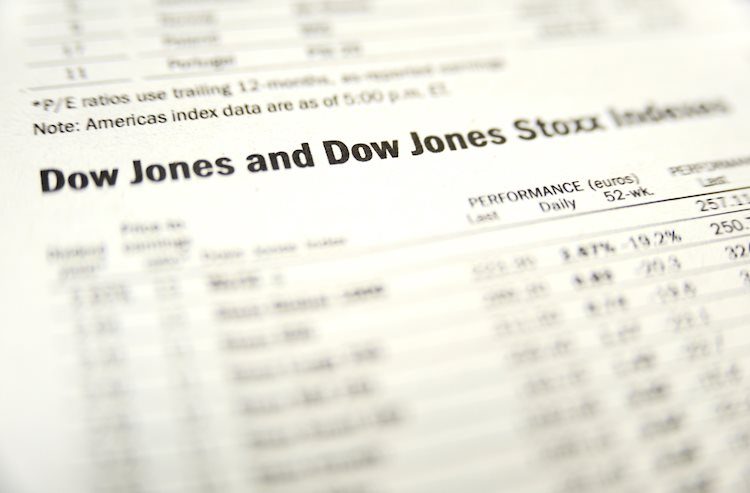The Dow Jones Industrial Average (DJIA) hit a new record high as investors reacted to the possibility of former President Donald Trump winning the US presidential election over Democratic candidate Kamala Harris. The surge in the stock market was largely driven by expectations of future deregulation in the banking sector under a Trump administration. Stock prices were optimistic about a pro-growth environment with more deregulation and business tax cuts under a Republican-led government.
The DJIA board saw about two-thirds of its companies in the green on Wednesday, with some, like Home Depot and Nike, lagging due to issues with inventories and logistics. However, top performers like Goldman Sachs and JPMorgan Chase soared, with Goldman Sachs reaching nearly $595 per share and JPMorgan Chase surpassing $245 per share. This upward trend in stock prices was fueled by optimism surrounding future policy changes under a Trump presidency.
In terms of price forecast, the DJIA displayed a bullish trend, leaving short sellers with limited opportunities for entry. The index had pushed past 43,600 into record territory, but lacked significant technical signals for a turnaround. A potential downside could see price action retracing towards the 50-day Exponential Moving Average (EMA) around 41,970. However, any short pressure would first need to bring bids back down to around 43,200 before a meaningful correction could occur.
The Dow Jones Industrial Average index is made up of the 30 most heavily traded stocks in the US and is price-weighted. The index was founded by Charles Dow and has been a key indicator of the stock market’s performance for decades. While it has faced criticism for not being broadly representative enough due to its focus on a limited number of conglomerates, it remains a widely followed index that reflects the overall health of the US stock market.
Various factors drive the performance of the DJIA, including the quarterly earnings reports of its constituent companies, US and global macroeconomic data, and interest rates set by the Federal Reserve. Inflation and other metrics also impact investor sentiment and the overall direction of the stock market. Dow Theory, developed by Charles Dow, provides a method for identifying the primary trend of the market based on the movement of the DJIA and the Dow Jones Transportation Average (DJTA) in the same direction.
Investors have several options for trading the DJIA, including ETFs, futures contracts, options, and mutual funds. ETFs like the SPDR Dow Jones Industrial Average ETF (DIA) allow traders to invest in the index as a single security, while futures contracts and options provide speculative opportunities for future value movements. Mutual funds offer investors a diversified portfolio of DJIA stocks, providing exposure to the overall index. Trading strategies and tools can help investors optimize their returns and manage risk effectively in the dynamic stock market environment.











